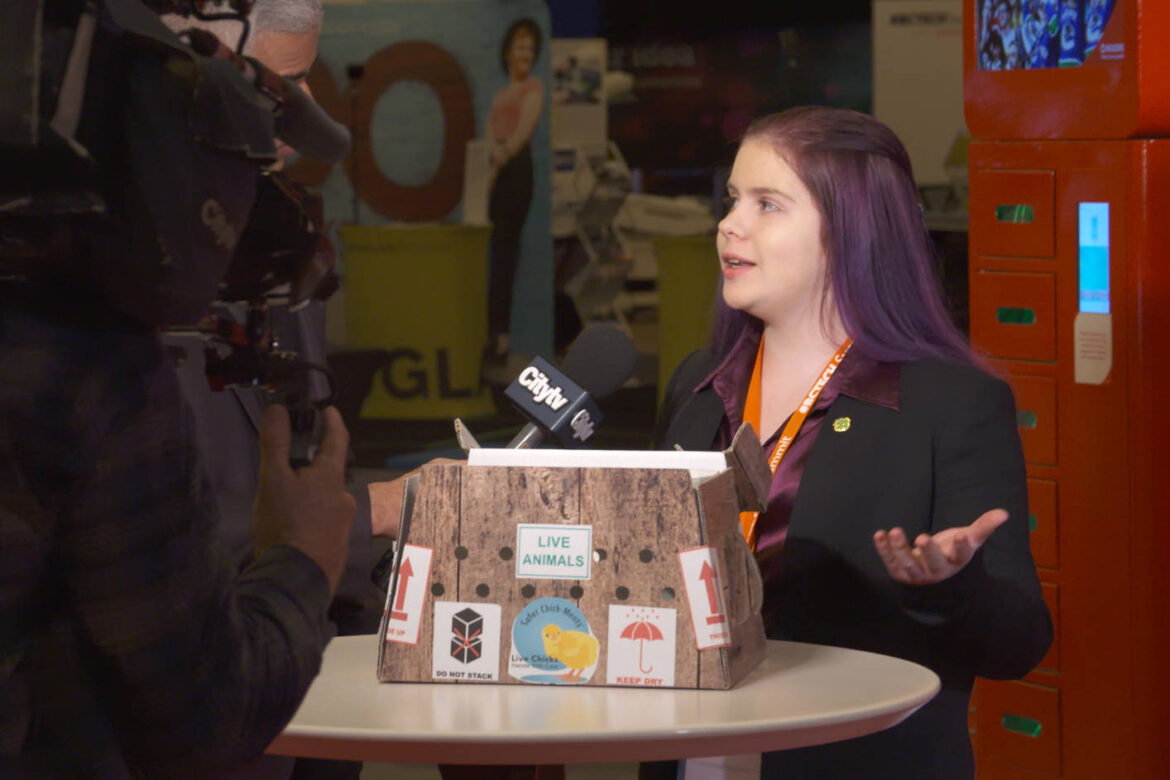Discover how young innovators are defying conventions and redefining industries with their out-of-the-box thinking, disrupting traditional norms and approaches.
KEY TAKEAWAYS
- Unconventional thinking plays a crucial role in driving innovation and redefining industries.
- Young innovators bring fresh perspectives and disruptive ideas that challenge traditional norms.
- Real-world scenarios demonstrate the transformative power of unconventional thinking in industries.
- Young innovators face obstacles and resistance but use strategies to overcome them and push their ideas forward.
- Fostering a culture that encourages and supports unconventional thinking is vital for industry redefinition.
- Embracing unconventional thinking creates opportunities for breakthroughs and positive change.
- Encouraging the next generation of young innovators is essential for shaping a better future.
- Unconventional thinking leads to innovation, industry disruption, and societal progress.
Welcome to a world where unconventional thinking sparks remarkable transformations and young innovators challenge the status quo. In an era of rapid change, industries are being redefined by bold ideas and fresh perspectives. It is the power of unconventional thinking that breathes new life into stagnant practices, revolutionizing how we work, live, and connect. In this article, we delve into the fascinating realm of unconventional thinking and the young innovators who are at its forefront.
Unconventional thinking is a mindset that defies norms, questions assumptions, and seeks unconventional solutions. It is this unconventional thinking that paves the way for breakthrough innovations and redefines industries. With their boundless curiosity, fearlessness, and willingness to challenge established norms, young innovators are driving change and reshaping entire sectors.
Join us as we explore real-world scenarios where unconventional thinking has transformed industries, examine the obstacles these young innovators face, and discover how they navigate through resistance. Together, we’ll unravel the strategies and approaches used to foster a culture of unconventional thinking, and we’ll glimpse the inspiring future that awaits as young minds reshape industries through their daring ideas. Get ready to embark on a journey of unconventional thinking and be inspired by the young innovators who are redefining industries as we know them.
Challenging the Status Quo: Young Minds Leading the Way
In today’s rapidly evolving world, challenging the status quo and embracing unconventional thinking have become paramount to driving innovation and redefining industries. Young innovators, armed with their fresh perspectives and fearless attitudes, are at the forefront of this movement, revolutionizing sectors through their unconventional ideas.
Embracing Unconventional Thinking: Catalyst for Innovation
To truly understand the significance of challenging traditional norms, we must recognize the power of unconventional thinking as a catalyst for innovation. By questioning established practices and seeking alternative solutions, young innovators create pathways to breakthroughs and advancements. They possess a remarkable ability to envision possibilities beyond the confines of conventional wisdom, unlocking new opportunities that were previously unseen.
Success Stories: Disrupting Industries with Fresh Perspectives
Inspirational stories abound when we look at young innovators who have successfully disrupted industries with their unconventional thinking. These trailblazers fearlessly challenge the status quo, unafraid to take risks and forge new paths. Their fresh perspectives breathe life into stagnant sectors and pave the way for transformation.
One notable success story is that of Jane Carter, a young entrepreneur who revolutionized the transportation industry with her innovative ridesharing platform. By leveraging technology and reimagining traditional transportation models, Jane disrupted an industry that had long been resistant to change. Her unconventional thinking not only provided consumers with an efficient and cost-effective solution but also spurred a wave of similar innovations across the globe.
Another remarkable example is Sam Patel, a passionate environmentalist who spearheaded a groundbreaking sustainable fashion brand. Sam’s vision challenged the prevailing fast-fashion industry by creating a company that prioritized ethical sourcing, fair labor practices, and eco-friendly materials. Through his unconventional thinking, Sam not only disrupted the fashion industry but also inspired a movement towards more conscious consumer choices.
These success stories highlight the transformative power of embracing unconventional thinking. By daring to think differently, young innovators like Jane and Sam are reshaping industries, creating new possibilities, and setting a precedent for others to follow. Their fresh perspectives and innovative ideas serve as an inspiration to us all, reminding us that unconventional thinking holds the key to unlocking a better future.
Real World Scenarios: Success Stories of Industry Redefinition
The transformative power of unconventional thinking becomes evident when we examine real-world scenarios where young innovators have reshaped entire industries through their daring and unconventional ideas. These success stories showcase the immense potential of unconventional thinking to disrupt the status quo and pave the way for remarkable change.
Revolutionizing Healthcare: Reimagining Patient Care
One notable example of industry redefinition through unconventional thinking is the healthcare sector. Here, young innovators have challenged traditional models to improve patient care and outcomes. Driven by their empathy and determination, these innovators have developed groundbreaking solutions that address long-standing issues within the healthcare system.
Consider the story of Sarah Johnson, a young biomedical engineer who revolutionized the field of prosthetics. Frustrated by the limitations of existing prosthetic devices, Sarah embraced unconventional thinking and designed a prosthetic limb that utilized advanced robotics and machine learning. Her innovation not only restored mobility for amputees but also provided a more natural and intuitive experience. Through her unconventional approach, Sarah redefined the prosthetics industry, enhancing the lives of countless individuals.
Disrupting Transportation: Reshaping Mobility
The transportation industry has also witnessed significant transformations thanks to the unconventional thinking of young innovators. By challenging traditional norms and embracing emerging technologies, these innovators have revolutionized how we move and navigate our cities.
Take the example of Mark Davis, a young entrepreneur who founded an electric scooter-sharing platform. Faced with the challenges of traffic congestion and air pollution in urban areas, Mark saw an opportunity to provide a sustainable and convenient mobility solution. His platform, powered by electric scooters, allowed users to navigate crowded city streets efficiently while reducing their carbon footprint. Through his unconventional thinking and innovative business model, Mark reshaped the transportation landscape, inspiring a wave of similar initiatives worldwide.
Transforming Education: Redefining Learning
In the realm of education, young innovators have harnessed the power of unconventional thinking to redefine how knowledge is acquired and shared. By leveraging technology and adopting innovative approaches, they have created new avenues for learning, breaking free from traditional educational frameworks.
An exemplary case is the story of Maya Patel, a young educator who developed an online learning platform that caters to the diverse needs of students worldwide. Maya recognized the limitations of traditional classroom settings and sought to provide personalized and accessible education to all learners. Her platform harnessed the power of artificial intelligence and adaptive learning algorithms to deliver tailored content and support to students, regardless of their geographical location or socio-economic background. Through her unconventional thinking, Maya transformed the education landscape, empowering learners and bridging gaps in access to quality education.
These success stories serve as compelling evidence of the transformative power of unconventional thinking. They demonstrate how young innovators, driven by their passion and unorthodox approaches, can challenge the status quo and redefine industries. In the next section, we will explore the obstacles faced by these young innovators and the strategies they employ to overcome resistance and push their unconventional ideas forward.
Overcoming Obstacles: Navigating Resistance to Unconventional Thinking

Introducing unconventional ideas and challenging the established norms can be an uphill battle for young innovators. They often face resistance, skepticism, and barriers to acceptance in their pursuit of redefining industries through unconventional thinking. However, these determined individuals have developed strategies and approaches to navigate these obstacles and push their ideas forward.
Embracing the Power of Conviction
One crucial strategy employed by young innovators is unwavering conviction in their unconventional ideas. They possess a deep belief in the transformative potential of their concepts and remain resolute in the face of skepticism. By articulating the vision, showcasing the benefits, and demonstrating the feasibility of their ideas, these innovators gradually gain the support and buy-in of key stakeholders.
Building Strategic Alliances and Networks
Collaboration and building strategic alliances are vital for young innovators to overcome resistance. They actively seek out like-minded individuals, mentors, and industry experts who share their passion for unconventional thinking. By leveraging their networks, these innovators gain valuable guidance, resources, and support, which help them navigate the challenges and push their ideas forward.
Showcasing Tangible Results
One effective approach used by young innovators is demonstrating tangible results and success stories to overcome resistance. By developing prototypes, conducting pilot projects, and showcasing real-world impact, they provide tangible evidence of the potential of their unconventional ideas. This empirical evidence helps to alleviate doubts, win over skeptics, and garner support from investors, industry leaders, and the public.
Embracing Failure as a Learning Opportunity
Young innovators understand that failure is an inherent part of the journey towards redefining industries. They embrace failure as a valuable learning opportunity and view setbacks as stepping stones to success. By learning from their mistakes, iterating their ideas, and demonstrating resilience, these innovators gain valuable insights and continuously improve their unconventional approaches.
Creating a Culture of Unconventional Thinking: Encouraging the Next Generation
To foster a culture that embraces and nurtures unconventional thinking among young minds, it is essential to provide initiatives, programs, and educational approaches that encourage and support young innovators in redefining industries.
Educational Reforms and Entrepreneurial Education
Educational reforms that prioritize creativity, critical thinking, problem-solving, and entrepreneurship play a crucial role in encouraging unconventional thinking. Incorporating project-based learning, experiential learning, and entrepreneurial education into curricula equips young minds with the skills, mindset, and resources necessary to challenge the status quo and pursue unconventional ideas.
Incubators, Accelerators, and Innovation Hubs
Incubators, accelerators, and innovation hubs provide invaluable support for young innovators. These platforms offer mentorship, access to resources, funding opportunities, and a collaborative environment where unconventional thinking is celebrated. By providing the necessary infrastructure and guidance, these initiatives help young innovators refine their ideas, develop prototypes, and navigate the complexities of industry redefinition.
Industry-Student Collaborations and Open Innovation
Encouraging collaborations between industries and students promotes a culture of unconventional thinking. Industry-sponsored challenges, internships, and open innovation initiatives allow young innovators to work alongside seasoned professionals, gain industry insights, and contribute their fresh perspectives. This symbiotic relationship nurtures innovation, fosters knowledge exchange, and creates a conducive environment for redefining industries.
By nurturing a culture that celebrates unconventional thinking, supporting young innovators, and providing the necessary resources and platforms, we can inspire the next generation of industry redefiners. In the final section, we will explore the bright future that awaits as unconventional thinking continues to shape industries and drive transformative change.
Creating a Culture of Unconventional Thinking: Encouraging the Next Generation
Fostering a culture that embraces and nurtures unconventional thinking among young minds is paramount in unlocking the full potential of innovation and industry redefinition. By encouraging young innovators to explore uncharted territories, challenge established norms, and think outside the box, we can ignite a wave of transformative change. Several initiatives, programs, and educational approaches have emerged to support and empower young innovators in redefining industries.
Promoting Creative Problem-Solving and Critical Thinking
One fundamental aspect of cultivating a culture of unconventional thinking is placing emphasis on creative problem-solving and critical thinking skills. Educational institutions and programs that prioritize these skills equip young minds with the ability to approach challenges from unique angles, encouraging them to question existing solutions and explore innovative alternatives.
Entrepreneurship Education and Start-up Support
Entrepreneurship education and start-up support play a vital role in fostering a culture of unconventional thinking. By introducing young innovators to the entrepreneurial mindset, these programs provide them with the necessary skills, knowledge, and resources to transform their unconventional ideas into viable ventures. Incubators, accelerators, and mentorship programs offer guidance and support, enabling young innovators to navigate the complexities of industry redefinition.
Industry-Academia Collaborations
Collaborations between industries and academia serve as a catalyst for unconventional thinking. Initiatives that facilitate partnerships between educational institutions and industry leaders create opportunities for knowledge exchange, real-world problem-solving, and innovation. Joint research projects, internships, and industry-sponsored challenges provide young innovators with practical experience and exposure to industry demands, inspiring them to think beyond conventional boundaries.
Hackathons and Innovation Competitions
Hackathons and innovation competitions serve as platforms for young innovators to showcase their unconventional thinking and problem-solving skills. These events bring together like-minded individuals, fostering collaboration, creativity, and out-of-the-box thinking. By challenging participants to tackle real-world problems, hackathons and competitions provide young innovators with the opportunity to present their innovative ideas to a wider audience and gain recognition.
Mentoring and Role Models

Mentoring and the presence of successful role models are instrumental in nurturing unconventional thinking among young innovators. Seasoned professionals who have defied traditional norms and achieved success in their respective fields can inspire and guide the next generation. Mentors provide valuable insights, support, and advice, empowering young innovators to overcome obstacles and persevere in their pursuit of redefining industries.
By fostering a culture that celebrates unconventional thinking, promoting creativity and critical thinking, providing entrepreneurship education and support, encouraging industry-academia collaborations, and offering mentoring and role models, we can create an environment that nurtures the innovative spirit of young minds. Through these initiatives and programs, we can empower the next generation of young innovators to challenge the status quo, redefine industries, and shape a brighter future.
Final Thoughts
The world of industries is witnessing a paradigm shift, thanks to the unconventional thinking of young innovators. These trailblazers are reshaping the way we perceive and operate within various sectors, challenging the status quo and paving the way for exciting possibilities. By daring to question established norms and embracing risk-taking, they have unlocked new avenues of growth and disruption.
The power of unconventional thinking lies in its ability to break free from traditional boundaries, enabling young innovators to introduce fresh perspectives and innovative solutions to age-old problems. From technology to healthcare, finance to entertainment, these pioneers are leaving their mark, transforming industries and propelling us into a future of boundless opportunities.
It is crucial for us to recognize and nurture the potential of these young innovators. By fostering an environment that encourages unconventional thinking, we can harness their creativity and drive to fuel further advancements. Their audacity and passion serve as a reminder that age is no barrier to redefining industries and shaping the world around us.
As we move forward, let us celebrate and support these young disruptors, for they are the vanguard of a new era characterized by unconventional thinking and limitless possibilities. Together, we can create a future where innovation knows no bounds.

